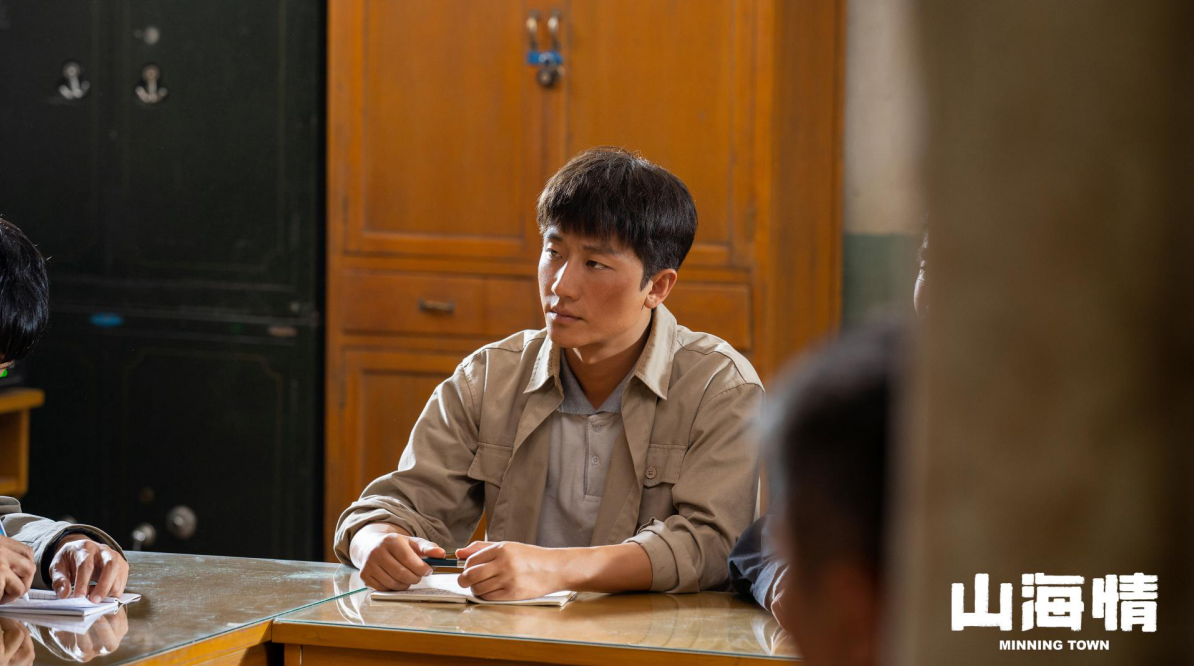
"Shan Hai Qing" has a total broadcast time of more than 2.5 million hours after it was launched on YouTube for two weeks. At the same time, it was broadcast in the form of television and new media in Asia, Europe, Oceania and Africa covered by Phoenix Satellite TV. Internet platforms have opened special areas, such as Tencent Video, China International Television Corporation, Huace Film and Television, etc., all of which have opened multilingual channels on the YouTube platform. A number of high-quality masterpieces have been broadcasted overseas and have attracted tens of millions of fans on the international stage. At the same time, the huge platform space of the Internet has provided strong technical support for the multilingual operation of Chinese film and television dramas, and facilitated the large-scale dissemination of domestic film and television dramas on the Internet. Diverse channels and high-quality content are ready for everything, and the link of translation should also keep up. 
However, what kind of translation work is of a high level? The process of people comprehending and appreciating film and television works is a cognitive process, a process in which input information such as plot, background, characters and other input information and knowledge stored in the brain are constantly interacted, and then conceptual assumptions are formed. After reasoning and judgment, a collection of conceptual representations is formed. , this collection is our understanding of the work. As a cross-cultural communication activity, the translation of film and television dramas is not only a simple exchange of language codes, but also a communication process and cultural transmission. Watching a film and television dubbed production is a cognitive interaction process between the target language audience and the content of the film and television drama, including the characters in the play, the target language discourse, scene, and sound in the play. Foreign audience groups have different cultural backgrounds, belief systems, and social living environments, and their encyclopedic knowledge is also very different. The effect of their appreciation of works is often deviated from the effect obtained by Chinese audiences. If you want to build the best related cognitive context with foreign audiences, help them understand the content, themes expressed, the communicative intentions of words, etc., and gain further aesthetic experience, the re-creation of translators and dubbing actors plays an important role. effect.
In order for foreign audiences to obtain a contextual effect similar to that of Chinese audiences in the process of watching film and television works, several "degrees" should be considered.

Third, foreign language dubbing should consider the appropriateness. A voice actor should not only have strong language control ability, but also accurately grasp the content, storyline, character and emotional state of the work, adopt appropriate tone and rhythm, and appropriately show the content to be expressed. Therefore, it is very important to seek cooperation with a high-level dubbing team to improve the artistic quality of voice actors.
Fourth, post-production needs to consider refinement. The completed works are processed and adjusted two or more times using techniques such as editing and synthesis to ensure that the picture is full, the structure is smooth, and the dubbing is harmonious and unified, which directly affects the final effect of the work. In the digital age, the "system" in film and television dubbing is particularly important. As the synthesis technology becomes more and more refined, post-synthesis can make the image more real and smooth, and make the audio-visual language more gorgeous.
At present, the country is paying more and more attention to the overseas work of film and television, and the overseas promotion of domestic film and television dramas is in full swing. In order to better realize the "blooming fragrance outside the wall", domestic film and television drama dubbing should make persistent efforts, actively seek international cooperation, actively adapt to the cognitive environment of the target audience, and guide them to communicate effectively with film and television dramas, so that Chinese stories and Chinese culture can be enriched. Things penetrated silently into their hearts.
(The author is Li Zuowen, a professor at Beijing Foreign Studies University and chairman of the Film and Television Translation and Communication Professional Committee of China Guanglian Association. This article was originally published in the 15th edition of Guangming Daily on May 25, 2022)

Stills of "Shan Hai Qing"
As an important link in the process of external dissemination of film and television dramas, the dubbing work includes translation, dubbing, production and other processes. Translation involves the fields of language, literature and culture, and dubbing production involves the fields of art and technology, which requires the cooperation of many fields. The ability and level of translation directly affect the audience's understanding of the work, and determine the communication effect and influence of the work. Therefore, how to produce high-level translation works can spread Chinese culture farther and wider, and play an important role in promoting mutual learning among human civilizations, connecting peoples, and building a community with a shared future for mankind.However, what kind of translation work is of a high level? The process of people comprehending and appreciating film and television works is a cognitive process, a process in which input information such as plot, background, characters and other input information and knowledge stored in the brain are constantly interacted, and then conceptual assumptions are formed. After reasoning and judgment, a collection of conceptual representations is formed. , this collection is our understanding of the work. As a cross-cultural communication activity, the translation of film and television dramas is not only a simple exchange of language codes, but also a communication process and cultural transmission. Watching a film and television dubbed production is a cognitive interaction process between the target language audience and the content of the film and television drama, including the characters in the play, the target language discourse, scene, and sound in the play. Foreign audience groups have different cultural backgrounds, belief systems, and social living environments, and their encyclopedic knowledge is also very different. The effect of their appreciation of works is often deviated from the effect obtained by Chinese audiences. If you want to build the best related cognitive context with foreign audiences, help them understand the content, themes expressed, the communicative intentions of words, etc., and gain further aesthetic experience, the re-creation of translators and dubbing actors plays an important role. effect.
In order for foreign audiences to obtain a contextual effect similar to that of Chinese audiences in the process of watching film and television works, several "degrees" should be considered.

"The World" poster
First, the selection of foreign-translated film and television works should consider the acceptance of the audience. Because the language usage, social structure, customs, value orientation, religious beliefs, etc. of the target audience are different from ours, there must be differences in understanding and points of interest. Therefore, when promoting overseas, we should try our best to explore the differences between foreign translated film and television works and the target audience. emotional resonance points and public opinion concerns. TV series such as "Beautiful Era of Wife" are popular in Africa; Disney bought the overseas distribution rights of the TV series "The World" within a month of its launch; Chinese TV series are on the list of the ten most popular overseas TV series by Vietnamese netizens. "In the Name of Family" and many other works are on the list. In recent years, the creation of realistic themes that express the life and family emotional stories of ordinary people in China is becoming the main force for Chinese film and television to go overseas. It can be seen that content that reflects the appearance of the new era and is full of fireworks can attract the attention of overseas audiences and leave a deep impression on them.
"In the Name of Family" stills
Second, the translation of film and television dramas should consider accuracy. In addition to being faithful to the language style of the work itself, the translation of film and television dramas should also accurately match the characteristics of the times in which the work is located, the character characteristics of the characters, the characteristics of lips and expressions when speaking, and the time and space constraints of subtitles. This is the unique charm of translation. At present, some domestic film and television dramas have excellent artistic quality, but because some lines are translated inaccurately, or the language characteristics do not match the characters' personalities, overseas audiences dance and laugh, and they fail to achieve the proper communication effect. It is a pity .Third, foreign language dubbing should consider the appropriateness. A voice actor should not only have strong language control ability, but also accurately grasp the content, storyline, character and emotional state of the work, adopt appropriate tone and rhythm, and appropriately show the content to be expressed. Therefore, it is very important to seek cooperation with a high-level dubbing team to improve the artistic quality of voice actors.
Fourth, post-production needs to consider refinement. The completed works are processed and adjusted two or more times using techniques such as editing and synthesis to ensure that the picture is full, the structure is smooth, and the dubbing is harmonious and unified, which directly affects the final effect of the work. In the digital age, the "system" in film and television dubbing is particularly important. As the synthesis technology becomes more and more refined, post-synthesis can make the image more real and smooth, and make the audio-visual language more gorgeous.
At present, the country is paying more and more attention to the overseas work of film and television, and the overseas promotion of domestic film and television dramas is in full swing. In order to better realize the "blooming fragrance outside the wall", domestic film and television drama dubbing should make persistent efforts, actively seek international cooperation, actively adapt to the cognitive environment of the target audience, and guide them to communicate effectively with film and television dramas, so that Chinese stories and Chinese culture can be enriched. Things penetrated silently into their hearts.
(The author is Li Zuowen, a professor at Beijing Foreign Studies University and chairman of the Film and Television Translation and Communication Professional Committee of China Guanglian Association. This article was originally published in the 15th edition of Guangming Daily on May 25, 2022)
Related Posts